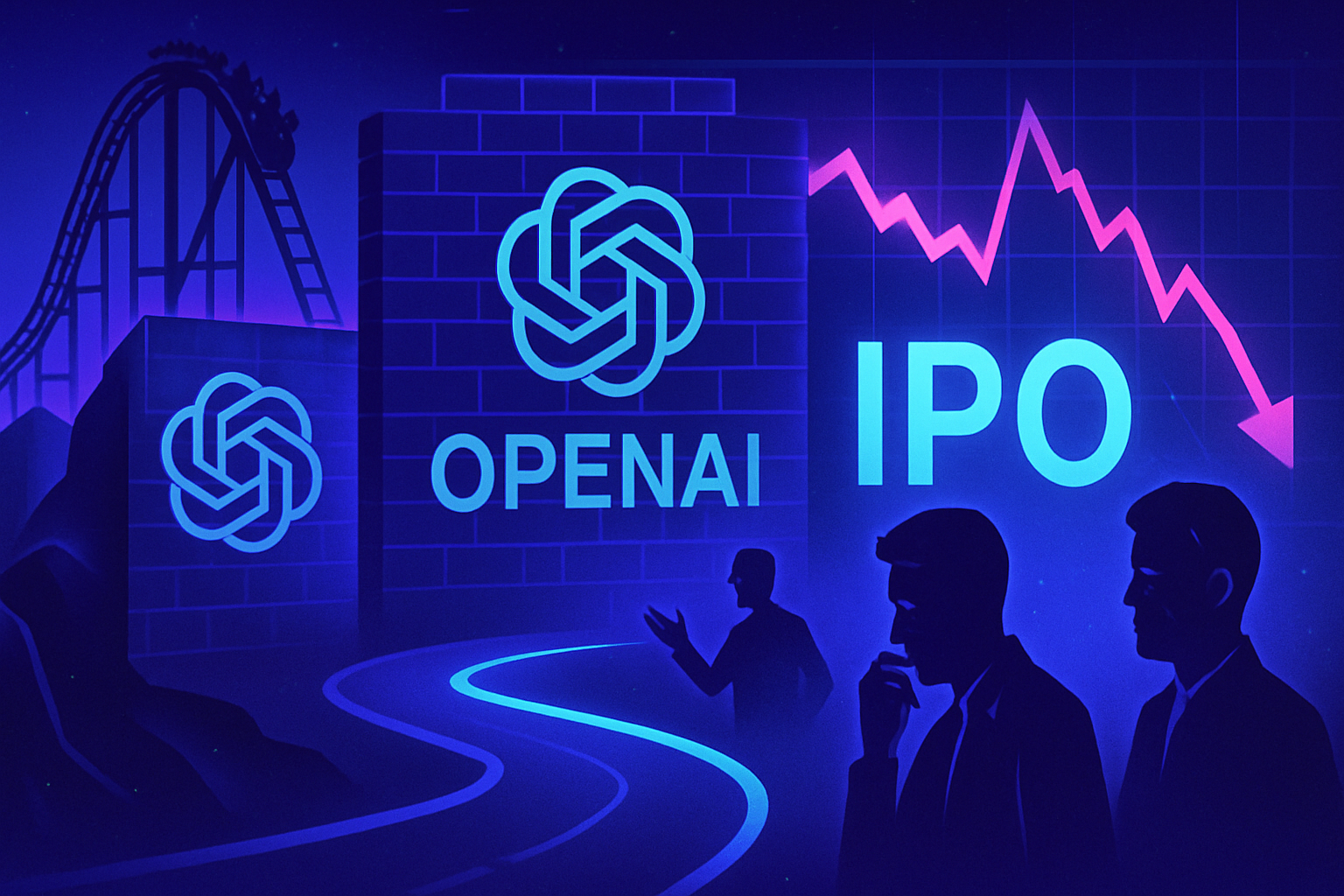The rise of OpenAI towards an initial public offering raises colossal stakes. Advocating for a humanistic vision of artificial intelligence, the company must navigate a complex universe. Redefining its legal status is crucial to ensure its growth. The tumultuous relationship with Microsoft, its main investor, complicates OpenAI’s strategy. Financial and legal challenges are multiplying, making the path as demanding as it is uncertain. Social and ethical pressures also weigh on its future. OpenAI must now overcome obstacles to realize its ambitious ambitions.
OpenAI’s transformation into a for-profit company
OpenAI, co-founded in 2015 by Sam Altman and Elon Musk, is transforming into a for-profit company. This transition responds to an urgent need for funding for its ambitious projects in the field of general artificial intelligence. The change in status is all the more necessary as OpenAI works towards powerful technologies that require colossal investments.
The current structure, a hybrid model with capped profits, limits investor returns to x100. This hinders the ability to attract adequate funding to support its innovations. OpenAI is therefore seeking to become a public benefit corporation, allowing for a better investment strategy while continuing to advocate general interest objectives.
A crucial agreement with Microsoft
A major turning point recently occurred with the announcement of an agreement between OpenAI and Microsoft, its historical investor. OpenAI may relinquish the equivalent of 100 billion dollars in shares of its non-commercial branch, a strategic move to revisit its financial structure. This agreement aims to resolve the financial disputes between the two giants.
Microsoft has invested approximately 13 billion dollars in OpenAI since 2019, in exchange for 49% of future profits. This commitment has been crucial for the development of OpenAI’s technologies, but now hinders its transition to a more flexible structure. To succeed in its transformation, OpenAI must convince Microsoft to abandon its right to profits, a difficult objective to achieve.
Legal and ethical challenges
OpenAI must also face complicated legal issues. Prosecutors in the United States, particularly in California and Delaware, express concerns regarding the evolution of OpenAI’s governance and the safety of its products. The accusation that ChatGPT may have been involved in the suicide of a young man in California raises major ethical and legal questions.
The pressure from civil society and peers, such as Meta, increases the difficulties faced by OpenAI. These actors seek to hinder its progress towards greater control of actions and protect their own interests. Such tension complicates OpenAI’s transformation process even further.
The critical timing for the IPO
OpenAI is attempting to change its status in anticipation of an IPO. This move is conditioned by recent investments of 40 billion dollars raised from various investors, including the Japanese conglomerate Softbank. This means that failure in this task could lead to the repayment of securities worth 20 billion dollars.
The challenge is even greater with the threat from Elon Musk, who is suing OpenAI. Musk accuses OpenAI of misleading its investors about its philanthropy. This climate of hostility adds significant pressure on Sam Altman and his team as they try to navigate these turbulences while preparing for a historic IPO.
Future outlook for OpenAI
The swift resolution of negotiations with Microsoft represents an opportunity for OpenAI to advance in its transformation. However, the company must secure a solid legal framework and allay public concerns before it can fully commit to the stock market. A successful shift in direction could provide a considerable impetus for its growth and technological ambitions.
The difficulties faced by OpenAI, visible when observing criticisms from civil society, mark a turning point in the evolution of the artificial intelligence sector. Obtaining assurances from Microsoft and meeting legal requirements could herald the beginning of a new era for this pioneering company.
FAQ on OpenAI’s IPO: a bumpy road ahead
What are the reasons for OpenAI’s change of status before its IPO?
OpenAI wishes to abandon its non-profit status to become a public benefit corporation, thus allowing it to raise more funds while retaining a social mission. This would also facilitate access to public markets.
What is Microsoft’s impact on OpenAI’s IPO?
Microsoft has invested heavily in OpenAI, recovering 49% of its future profits. This, however, complicates OpenAI’s transition to a new status, as it must convince Microsoft to renounce this share to make way for new shareholders.
Why can’t OpenAI remain non-profit after its success with products like ChatGPT?
The current non-profit structure limits OpenAI’s ability to attract investors and generate profits. A change in status is necessary to fully benefit from its commercial success.
What legal challenges does OpenAI need to overcome before the IPO?
OpenAI faces investigations from state attorneys general regarding the implications of its governance change and the safety of its products. Ethical concerns have also been raised regarding the impact of its technologies on tragic events, which could further complicate its IPO.
How does Elon Musk’s departure influence OpenAI’s governance structure?
Elon Musk left OpenAI due to disagreements about its future status. His departure represents a turning point for the company, leading to discussions about direction and governance that need to be clarified before the IPO.
What does the recent fundraising involve for OpenAI and what is its purpose?
OpenAI announced a record fundraising of 40 billion dollars to support its transition to a public benefit corporation and prepare for its IPO. This will enhance its financial resources and secure its future development.
What are the financial risks associated with OpenAI’s IPO?
OpenAI must manage investor expectations and ensure it maintains profitability. It faces competitive challenges and repayment obligations if the status change fails, which could exert significant financial pressure.
Does OpenAI have competitors and how does this impact its IPO?
Yes, OpenAI is competing with other companies like Meta. This competition alters market dynamics and highlights the importance for OpenAI to establish its position before the IPO to secure a place in the artificial intelligence technology market.






